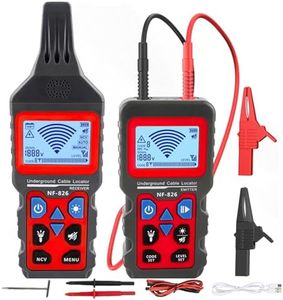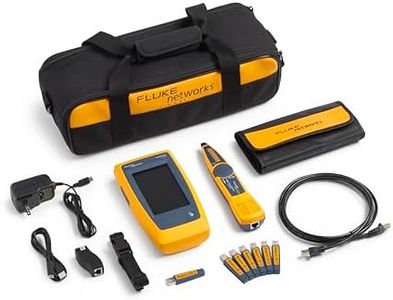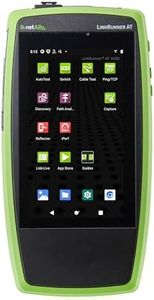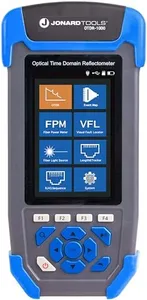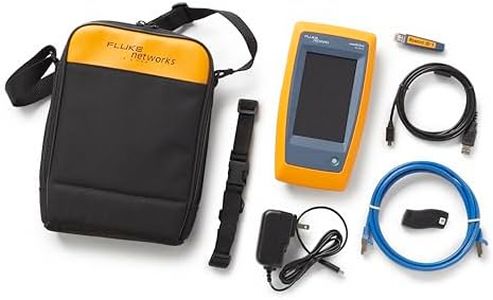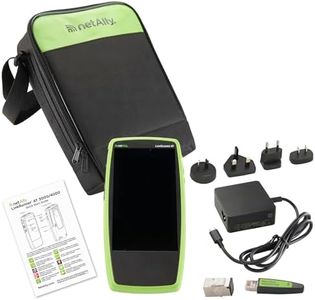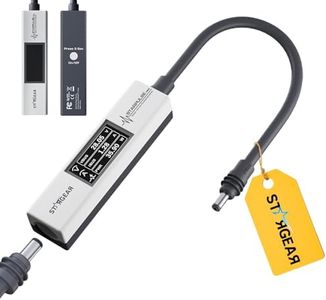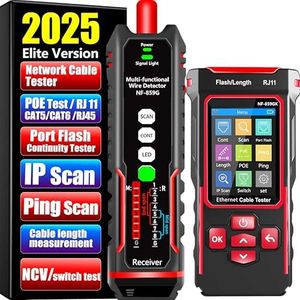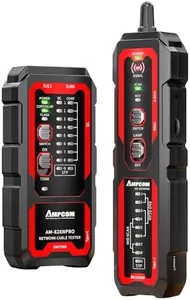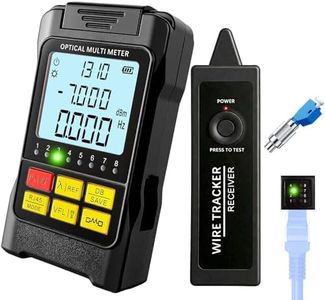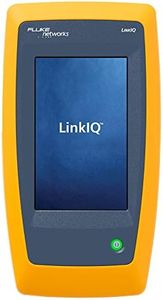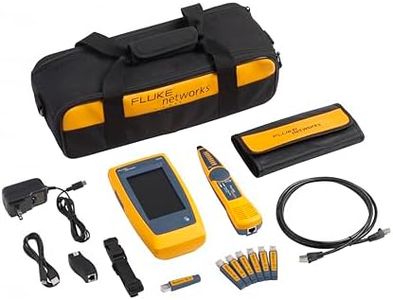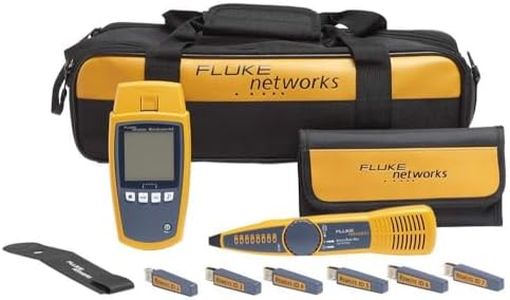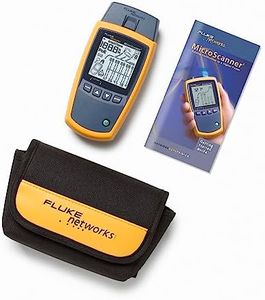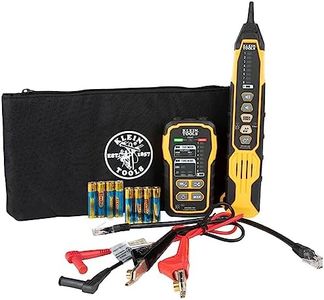10 Best Network Cable Testers 2026 in the United States
Our technology thoroughly searches through the online shopping world, reviewing hundreds of sites. We then process and analyze this information, updating in real-time to bring you the latest top-rated products. This way, you always get the best and most current options available.

Our Top Picks
Winner
Fluke Networks LIQ-Duo-KIT, LinkIQ-Duo Cable, Wi-Fi, and Network Tester Kit
Most important from
102 reviews
The Fluke Networks LIQ-Duo-KIT is a versatile cable and network tester designed for professionals who need reliable and detailed diagnostics. It supports performance testing for cables up to 10GBASE-T, making it ideal for modern high-speed Ethernet networks. It checks wire maps, distance to faults, and also includes toning capabilities for locating cables. Beyond cable testing, it offers network features such as IPv4 and IPv6 ping tests and can identify the nearest switch details like IP address, port, and VLAN, which helps in troubleshooting network issues quickly.
A standout feature is its Ethernet Alliance-certified PoE verification, which not only detects the power class of connected devices but also performs load tests to ensure sufficient power delivery. Additionally, it supports Wi-Fi analysis up to the latest Wi-Fi 6E standard, providing useful data on networks, channels, and access points. The tester is battery powered (using a standard 9V battery) and weighs about 2.6 pounds, making it portable enough for field use while still being robust.
Its display and interface are user-friendly, though it might require some learning for those new to advanced testers. One minor drawback is the price, which tends to be higher due to its advanced features, and the need to replace 9V batteries occasionally. This kit is well suited for network technicians and IT professionals who require a comprehensive tool for both cable and network troubleshooting, especially in environments with fast Ethernet and Wi-Fi 6E deployments.
Most important from
102 reviews
NetAlly LinkRunner at 4000
Most important from
4 reviews
The NetAlly LinkRunner AT 4000 is a versatile network cable tester designed for professionals who need to quickly diagnose and analyze both copper and fiber Ethernet cables. It supports a wide range of cable types including traditional Ethernet speeds (10/100 Mbps, 1 Gbps) plus newer, faster connections like 2.5G, 5G, and 10G Multigigabit speeds, making it useful for modern network environments. Its automatic tests cover important network functions such as link speed, duplex settings, and Power over Ethernet (PoE) performance up to 90W, which is helpful for verifying if devices like security cameras or phones are receiving enough power. It also includes advanced cable fault detection (shorts, opens, miswires) and can measure fiber link strength, which adds to its usefulness for mixed network setups.
The device features an intuitive interface and automatic reporting via the Link-Live platform, allowing users to generate network topology maps and share results easily. This makes it more than just a tester — it acts as a network troubleshooting and documentation tool. Its compact size and battery power make it portable enough for fieldwork. Weighing just over a pound, it's light and reasonably durable for typical industrial use but may require some care in harsher environments.
A potential drawback is that while it offers many advanced features, its price and complexity might exceed the needs of casual or very basic users. Additionally, it relies on a proprietary reporting system for full functionality, meaning some features work best if users are integrated into their ecosystem. The LinkRunner AT 4000 is a powerful, all-in-one tester suited for network technicians and engineers who require comprehensive cable and network diagnostics, especially in business or enterprise settings. It balances portability, detailed testing, and smart reporting, although it may be more than necessary for simple home or small office use.
Most important from
4 reviews
Jonard Tools OTDR-1000 Multi-Function OTDR with OTDR, Event Map, Power Meter, Light Source, VFL, Network Cable Tester, and More, Black
Most important from
12 reviews
The JONARD TOOLS OTDR-1000 is a versatile network cable tester designed for professionals working with fiber and Ethernet cables, particularly in FTTx and access network tasks. It combines multiple testing functions into one device, including an OTDR (for detecting fiber breaks and cable lengths), power meter, light source, visual fault locator (VFL), and RJ45 cable sequencer. This all-in-one approach saves the hassle of carrying multiple tools and can be very useful for thorough cable evaluation and troubleshooting. The device supports Ethernet cable testing and offers specialized adapters for common fiber connectors, which adds flexibility for different setups.
Its 600 MB internal storage plus a slot for additional memory means you can save test results easily, a helpful feature for keeping track of work. The built-in rechargeable lithium-ion battery makes it portable for field use without worrying about frequent battery changes, and it comes with a sturdy travel case for protection. While it covers many functions, the product is somewhat specialized and might be more than needed for casual users or simple home network checks. Additional adapters needed for some connectors are sold separately, which can add to the cost.
This tool is well suited for technicians or serious network installers who want a comprehensive device for fiber and Ethernet cable testing, combining convenience and power in one portable unit.
